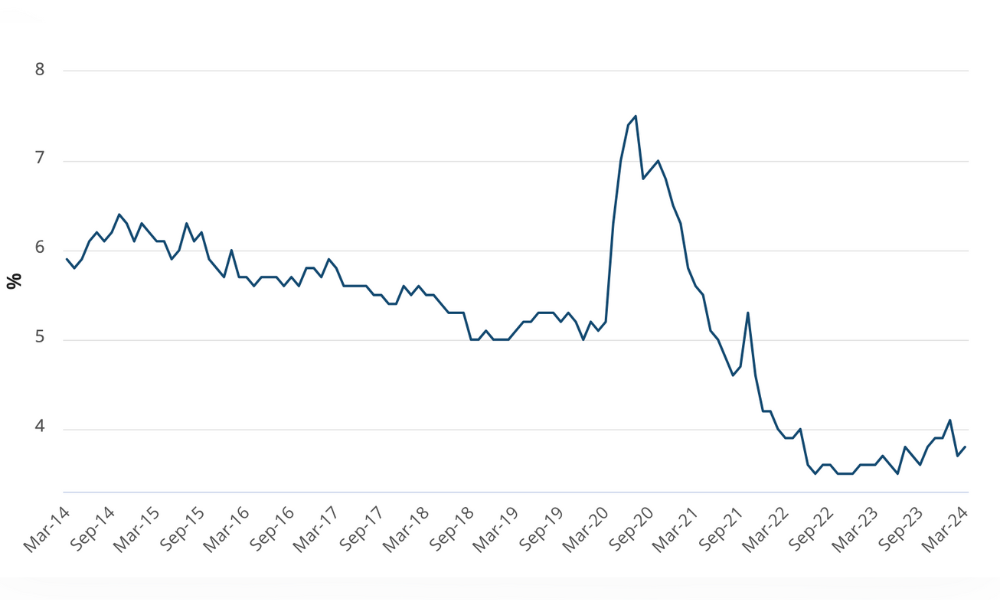There are clear business benefits to be had through a sound corporate social responsibility program. Tom Washington reports on what makes such schemes successful and the role HR must play
There are clear business benefits to be had through a sound corporate social responsibility program. Tom Washington reports on what makes such schemes successful and the role HR must play
Back in 1998, while addressing Ford Motor Company stockholders, William Ford Jr said: “I believe the distinction between a good company and a great one is this: A good company delivers excellent products and services, a great one delivers excellent products and services and strives to make the world a better place.”
The term corporate social responsibility (CSR) refers to the idea that organisations should contribute wealth or resources solely dedicated to the improvement of society as a whole. The principal of social responsibility dictates that these entities should contribute at least a small amount of resources to the general well being of humanity. Crucially, these actions should not, in any way, be profit-generating.
While the definition of CSR has largely remained unchanged since Ford Jr addressed his stakeholders 12 years ago, the same can’t be said of its profile, which has flourished over the past decade. Benefitting from heightened awareness of climate change, inequality, and diminishing energy resources, large and small businesses alike have been under pressure to contribute to the greater good.
According to the Australian Centre for Corporate Social Responsibility’s (ACCSR’s) State of CSR in Australia: 2009 Annual Review, many businesses have begun tying their CSR strategies far more closely to their overall business strategy as a result of the GFC. Almost half (49 per cent) said the GFC had made their organisation more interested in CSR.
However the report, which polled over 300 managers about CSR capabilities, also revealed that 14 per cent of organisations saw a reduction in CSR staff and 19 per cent has a reduction in their CSR budget. So while the desire is there to act, the resources may not be readily available.
HR and CSR
HR’s role in CSR strategy varies depending on organisation, but in today’s increasingly ethical world, there are very few HR departments that are not required to get to grips with it.
Michael Moore, senior consultant at Scaffidi Hugh- Jones, a consultancy that specialises in reputation management and people engagement, says that organisations recognise the potential that CSR programs offer in terms of employee engagement and workplace morale, which means “HR must have skin in the game”.
“Whether CSR belongs in the HR function will depend on the size, structure and strategic approach of the organisation,” he says.
“It is not unusual, particularly in larger organisations, to find the CSR program sitting alongside the people responsible for corporate reputation within the HR function. CSR is seen as an important component of a company’s reputation internally and externally, so the alignment makes sense.”
In Moore’s experience, employees get more engaged if they have the opportunity to be ‘hands- on’, which is why the employee volunteering activities are still popular. “The challenge is maintaining momentum beyond the initial enthusiasm for a new program, or during a period of change or when times are tough,” he says.
Boosting corporate reputation, or the employer brand in a competitive talent market is certainly a by product of a sound CSR strategy.
Alec Bashinsky, people and performance leader at Deloitte, is responsible among other things for the attraction and retention of talent at the firm. He says: “I think CSR fits nicely into those [attraction and retention] strategies. In today’s environment, CSR is very much on the agenda of talent. That means people you are trying to bring into the organisation, and those that you want to retain.”
Bashinsky claims, however, that CSR is not a tool to be used simply for a reputational leg-up, nor is it able to limit reputational damage if something goes awry. “You can put a smoke screen around an issue but, for example, it doesn’t matter how good BP’s CSR strategy is...”
Younger workers
Younger employees, who are by and large more enlightened than their Baby Boomer colleagues on environmental and social issues, are particularly likely to choose employers whose values align with theirs. For instance, 96 per cent of the 3,000 plus respondents in Johnson Controls and Haworth’s GenerationY and the Workplace Annual Report 2010 said that they wanted to work in a sustainable workplace.
“The questions that we absolutely get asked at campus level with the graduates are about what we are doing around CSR and they are very well versed around carbon emissions, social equality, the environment, integrity and balance,” says Bashinsky. “So over the past four years we have seen that as one of the critical elements of our employee value proposition.”
Sarah Stawiski, co-author of a report on the World Leadership Study conducted by the US-based Centre for Creative Leadership (see box for more details), says: “If an employee isn’t happy, a strong CSR program isn’t likely to tip the balance. Though a good social responsibility program won’t reduce turnover, it can impact how employees view your organisation and the kind of ambassadors they will be when they come in contact with your customers, shareholders and community members. There are definitely positive benefits to be had.”
Eco-friendly workplace
A relatively recent trend in CSR strategy has been a move towards ‘green’ buildings. Reducing waste, improving energy efficiency, even printing on both sides of paper are all things every single organisation can, and should, be on top of.
Robin Mellon, executive director at the Green Building Council of Australia, says that with most office workers spending 90 per cent of their days indoors, it is unsurprising that the indoor environment quality (IEQ) of buildings affects people’s productivity.
Referring to the Green Building Council’s Green Star project, which focuses on the efficiency and sustainability of a building, Mellon says: “In Australia, we have a number of post-occupancy studies of Green Star-rated buildings which confirm this view. For example, a post-refurbishment study of 500 Collins Street in Melbourne found a 39 per cent reduction in average sick leave days per employee per month, together with a nine per cent increase in typing speeds of secretaries and a seven per cent increase in lawyers’ billings ratio, despite a 12 per cent decline in the average monthly hours worked.”
“In terms of attracting and retaining staff, green buildings are increasingly seen as a symbol of a corporation’s environmental and social performance, and can act as a powerful strategic business tool, providing an attractive employee benefit while boosting productivity and worker morale.”
Board involvement
At large firms such as Deloitte, the key to its comprehensive CSR plan is having buy-in and involvement at Board level. Focussed around the Deloitte Foundation, which Bachinksky helped set up, the program includes mentoring schemes designed to improve child literacy and build leadership skills in community projects; pairing partners with principles and teachers and schools; volunteering programs; pro bono work; and sponsorship of national charities.
“The person who drives our CSR strategy is in fact our chairman, Wayne Goss, and that is something that we in Australia see as a differentiator for us,” explains Bashinsky.
Professor Andrew Kakabadse concurs, saying that what a business decides its ‘social responsibilities’ are, is dependent on the debate between the Board and the management team.
“When CSR is done well, it is a Board function. Somebody starts the debate on the Board about what the responsibilities are and why it needs to be governed at that level. Where CSR is more of a joke, is where it is a management responsibility, a reporting function which the Board is then informed about.”
Commentators agree that there is a danger of employers rolling out CSR strategies simply in order to comply with the ‘norm’ and keep up with competitors, without really thinking through what the strategy means for the organisation from a business perspective.
According to Kakabadse, at least 90 per cent of CSR work is still firmly entrenched at management level, meaning that many strategies are not followed through to completion. “It is the follow-through from the CEO or chairman that is the distinguishing factor. Those that have great CSR practices have provided a business interpretation to their CSR, as opposed to a PR and image interpretation. A maximum of 10 per cent of the world’s corporations have taken this clever route.”
Token gestures not enough
Bashinsky says: “It’s not good enough to say ‘yeah we’ve got a volunteering policy’. Particularly our graduates but employees in general really want to know what we’re doing in the broader context. And that can be with education, healthcare, environment or the community. CSR is not just about volunteering or spending a day packing Christmas hampers, it’s a far broader strategy that has evolved over the last few years.”
Kakabadse says that CSR should be absolutely central to a successful business, yet poor implementation, along with corporations being involved in oil spills, financial meltdowns, and manufacturing errors, is giving it a bad name. “You will see one scandal come up after another and people will get sick and tired of hearing about CSR. So even when it’s done well you’re going to get to a point where nobody believes you.
“If you go into some companies in certain countries you will get told that the letters CSR are not to be mentioned. Even those three letters are now seen to be a problem and the name is changing to ‘sustainability’ or just ‘CR’, because CSR becoming seen as something that can’t be delivered on.”
“Even the identity of CSR is going through change because of continual poor CSR as promotion as part of a PR machine. And they’re not bad people, they’re doing the best they can, they just haven’t thought it through,” says Kakabadse.
The task of implementing a fit and proper CSR program certainly gives HR departments a lot to think about, perhaps not helped by its ever-evolving definition. What is most important, though, is not trying to define it but actually engaging in a program in the first place. After all, the crux of any scheme is to do some good.
So while CSR provides HR professionals with a tricky challenge but if tackled properly, with backing from senior business leaders, they can make a big difference to not only their business but the wider world, too.








